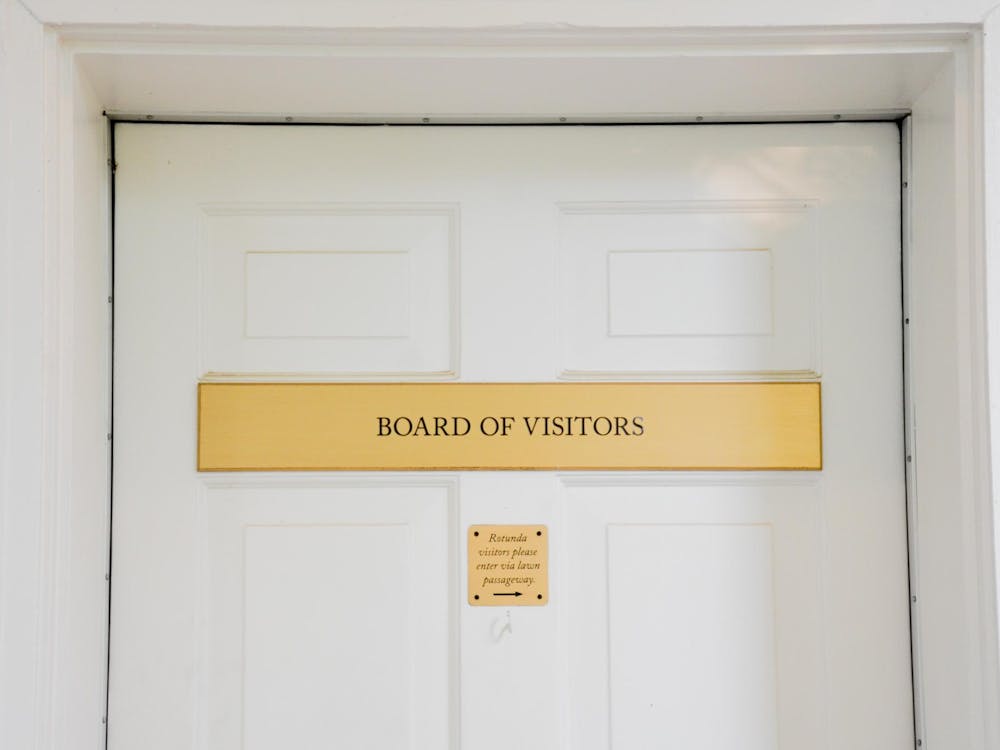As the peace process in the Middle East nears critical dates set by both sides, Egyptian Ambassador Nabil Fahmy told an audience in the Rotunda yesterday that Palestine must have its own state for there to be peace in the Middle East.
Israeli Prime Minister Ehud Barak took one large step in that direction this week, telling President Bill Clinton he was willing to recognize a Palestinian state in the West Bank.
The move is a "real watershed in Israeli mainstream political thought," said William B. Quandt, government and foreign affairs professor.
Fahmy also told the audience of about 60 people that Jerusalem should be under some form of dual sovereignty.
"People were treating the Palestinians as half-adults" in the peace process, he said.
Now the peace process supposedly is moving into its final stage, with Sept. 13 set as the target date to have a full-fledged peace agreement. However, Fahmy said he is not optimistic about the process ending on schedule.
"The final phase is always the most difficult one," he said.
Fahmy was closely involved in the peace process from 1993 to 1997 before becoming the Egyptian ambassador to Washington, Quandt said.
Fahmy said the region needs peace to achieve greater economic growth, but that peace is not possible until Israel returns to its pre-1967 borders.
Israel conquered land in Egypt, Syria and Jordan in the Six-Day War, which began June 4, 1967. Since then, the four nations have floated in and out of negotiations to return some or all of the lands back.
Egypt is one of few countries that has a good relationship with both sides of the peace process, Quandt said, making it a helpful ally in U.S. efforts to broker a deal.
Fahmy described Egypt as being a forward-looking nation, in which citizens wished to achieve peace in the region and move on to greater economic progress.
In the past, Egypt has had a sluggish economy, but it recently has seen 5 to 6 percent growth, Quandt said.
Several audience members asked questions about religious persecution in Egypt.
Fahmy admitted that acts of religiously-motivated violence occasionally occur, but he also painted the country as one in which the rule of law has taken hold. Churches are treated the same as mosques, he said.
But one member of the audience said she disagreed.
Fahmy "did not properly acknowledge the discrimination many Christian Egyptians face," fourth-year Engineering student Irene Jacoubs said.
Fahmy also said the government no longer has any political prisoners, a remark that caused some audience members raised their eyebrows.
"No political prisoners? I sort of think, yeah right," second-year College student Sabri Ben-Achour said. "He presented an optimistic view of the country. What would you expect from an ambassador?"
Quandt said Egypt did have a relatively independent judiciary system, but that some political opponents of the government were imprisoned for threats of political violence.
Ben-Achour said he agreed with most other parts of the speech, including Fahmy's comments on the gulf between cultures.
The West does not understand Islam properly, Fahmy said, and the Middle East likewise has a distorted view of the West. "You have to explain what America is all about," he said.
Several audience members said they appreciated the inside accounts and openness featured in Fahmy's speech.
"It was more informative than most speeches," second-year Engineering student Andrew Wahba said. "He seemed open-minded and optimistic as well"






